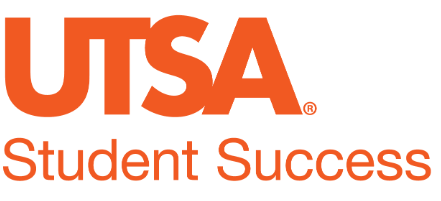Professional Resources | Student Success Coaching
Are you a learning assistance professional? Our coaches continue to learn and grow in their professional roles. Below, we have compiled resources that we have contributed to or use in our professional development.
Academic Coaching Manual
The Tomás Rivera Center Academic Success Coaching program put together a manual for the Academic Coaching program. This manual is used for training and development of staff. For an electronic copy of our manual, click here: UTSA TRC Academic Coaching Manual Please contact us at Academic.Coach@utsa.edu for permission to use any of the materials in this manual. While we are excited to share, we ask that you cite our work.
Professional Development
We encourage continued professional development through organization membership and conferencing. Our staff belong to the College Reading and Learning Association and the Texas College Reading and Learning Association. For more information, see www.crla.net and http://casp-texas.com/. Our Academic Coaches are also certified in Learning Center Leadership through the National College Learning Center Association. For more information about this organization, visit www.nclca.org.
Publications
Staff have contributed to several professional resource publications. See below for links.
Handbook for Training Peer Tutors and Mentors
The Handbook for Training Peer Tutors and Mentors offers a comprehensive resource for learning center professionals who train tutors and peer mentors. Several current and past TRC staffers contributed to this volume:
- Mentor Roles and Responsibilities, Lisa M. Johns
- Conflict Resolution for the Pre-Professional, Melissa Thomas
- Graduate Students: Defining Need and Providing Appropriate Assistance, Melissa Thomas
- Critical Thinking Within the Reading Process: Creating Desire and Enhancing Skills, Melissa Thomas
- Scaffolding Understandings of Students Identifying as LGBTQ, Annemarie Mulkey
For more information, visit the CRLA Publications page. Click here to purchase a copy for your center.
Article: The Graduate Writing Institute: Overcoming Risk, Embracing Strategies, and Appreciating Skills
Thomas, M., Williams, A., & Case, J. (2014). The Graduate Writing Institute: Overcoming risk, embracing strategies, and appreciating skills. The Learning Assistance Review 19(1), 69-98. Available from https://files.eric.ed.gov/fulltext/EJ1034029.pdf
Abstract: The purpose of this paper is to highlight the results from the Graduate Writing Institute, a week-long graduate writing workshop at a research-intensive HSI university in the southwest. Sixty-three graduate students who worked on large writing projects, such as theses or dissertations, volunteered to attend one of four separate Writing Institutes. These students took a pre- and post- Writing Inventory of Skills and Preferences (WISP) with significant increases in the WISP scores from pre-test to post-test, which indicated that the non-contextualized, cross-disciplinary content and structure of the Writing Institute successfully increased students’ knowledge of academic writing skills, including higher order concerns and lower order concerns. Additionally, evaluation survey results confirmed that attending the Graduate Writing Institute helped students overcome feelings of “academic risk.” Providing graduate students working on their thesis/dissertation with this type of specialized learning assistance (non-course based, interdisciplinary, non-contextualized holistic approach to addressing lower order concerns, higher order concerns, and academic risk) in a week long intensive institute with instructional time, peer interaction, individual writing time, and one-on-one writing consultations should be replicated for the benefit of graduate students at other institutions.
